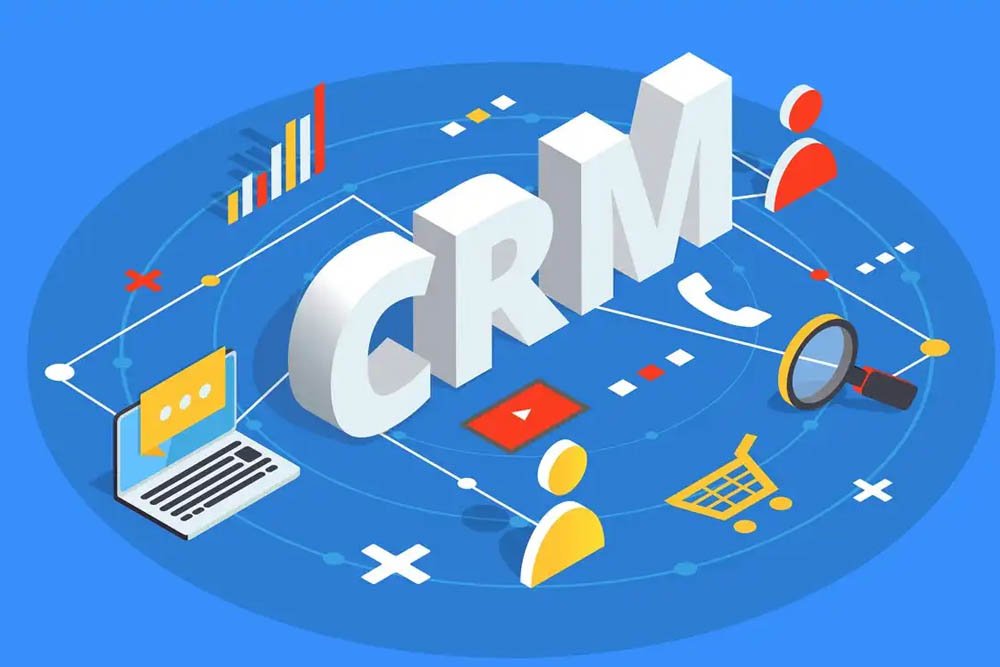
The beating core of a company might be its customer relationship management (CRM) system, which shapes every customer encounter and internal process improvement. A CRM is a necessary tool for increasing customer involvement, streamlining workflow efficiency, and optimizing sales potential; it is not only a data center. The most successful companies understand that a CRM system requires constant improvement to fit changing consumer demands, corporate development, and new technology—not a one-time solution.
Improved Data Accuracy
Any CRM’s success depends on accurate data, although this is sometimes neglected in hectic operations. You can engage and reply more effectively the more exact your consumer data is. Establishing a process for updating and validating consumer data guarantees that every touchpoint is current. Starting with standardizing data entry fields and forms will help teams get consistent, clear data. Accurate data helps your CRM to be a consistent source for campaign planning, target setting, and customer satisfaction measurement.
Implement Customer Segmentation
Not every client interacts with your company in the same manner, so understanding this can help your CRM performance to improve. By separating clients according to different criteria, such as purchasing behavior, demographics, and interaction patterns, your staff will be able to create focused engagement plans. Effective customer categorization helps your CRM system to be a great tool for handling leads, customizing marketing campaigns, and providing very tailored experiences that appeal to every customer category.
Train Workers Completely
Only the individuals utilizing a CRM system will determine how effective it is. Every team member is guaranteed to be comfortable using the CRM and to be able to maximize it via thorough training. Plan seminars or practical training courses where staff members may investigate the CRM’s capabilities, ask questions, and pick best practices particular to their positions. By means of this practical experience, staff members develop familiarity with the CRM, thereby enabling their confident application in their daily activities.
Use Automation Features
Automation may turn your CRM into a time-saving powerhouse so your staff may concentrate on high-value activities. From data input to follow-up emails and customer alerts, CRM systems with automation features may simplify repetitious tasks. Establishing automated processes for routine chores guarantees that no crucial step is missed and that every client engagement goes without incident. Automating chores like lead assignments, data updates, or routine follow-ups helps operations function smoothly and reduces hand-made mistakes.
Request CRM Consulting Services
Specialized insights provided by salesforce CRM consulting services help to improve your CRM approach and provide fresh development prospects. Analyzing your company needs and advising you on using best practices fit for your goals, CRM consultants provide a wealth of industry knowledge. Reviewing your present CRM system can help them spot areas for development, offer new features fit for changing consumer wants, and point out weaknesses. Along with helping to build a strong CRM system, these experts offer ongoing assistance as your company grows. Using outside CRM knowledge can lead to sophisticated tools, analytics, and automated solutions that are not immediately obvious.
Customize Dashboards
Dashboards give your staff a consolidated picture of performance indicators by including real-time snapshots of important CRM data. Making these dashboards provide pertinent information for various teams guarantees that everyone has access to the insights required. Dashboards help to graphically convey information—through graphs, charts, or tables—such that it is readily absorbed. Customizing lets you give the data that most count—such as customer satisfaction ratings for support teams or lead conversion rates for sales priority.
Integrate CRM
Combining your CRM with other important company tools—such as email marketing systems, customer care software, and e-commerce systems—unifies your activities and centralizes data. These systems, taken together, operate harmonically, allowing data to flow naturally between platforms. By removing the need for hand data entry, this interconnection guarantees that your team has access to complete customer data across all tools and helps to lower mistakes. Having a well-integrated CRM allows you to see every customer’s path—including purchase behavior, conversations, and support notes—360 degrees.
Regularly Review and Adjust CRM Strategies
Maintaining relevance and alignment with corporate objectives depends on ongoing review of a CRM system. Frequent evaluations guarantee that the CRM fits any changes in your company model, client base, or industry trend and assist in finding areas where it may be improved. Evaluate criteria like user engagement, data quality, and customer happiness during these assessments to ascertain the CRM’s performance. These ideas will help you to modify data management techniques, introduce fresh features, or change processes as necessary.
Conclusion
Improving your CRM system is about turning your customer data into a strategic asset that develops with your company, not only about storing it. Maintaining your attention on these important areas will help your CRM develop to promote longer-term success in all spheres of your company, better efficiency, and closer client interactions.





